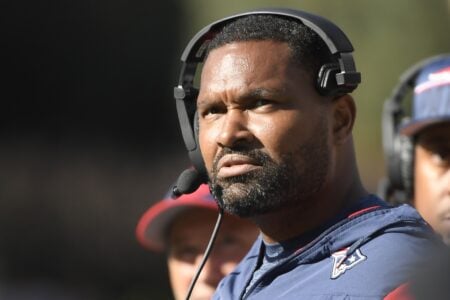Ring 6
PatsFans.com Supporter
PatsFans.com Supporter
2021 Weekly Picks Winner
2022 Weekly Picks Winner
- Joined
- Sep 13, 2004
- Messages
- 63,761
- Reaction score
- 14,113
Actually he is wrong that there are separate rules but there are separate requirements because if you are standing you have finished catching the ball when you get 2 feet down but if you are required to go to the ground when catching you haven’t finushed catching the ball until you survive the ground because the ground is part of your catch.No they don't. The criteria are EXACTLY the same: Be inbounds (two feet, or one non-hand body part) while gaining possession of the football. No difference.
The only seeming difference is deciding what it means to have "possession" in each situation. Either way, the ball must be secured (not moving). When falling, ball security must also be maintained through the contact with the ground. That makes perfect sense.
It is a one clear and simple rule for every catch, everywhere on the field, it can be fairly reviewed, and it is not a problem.
We just have to get over the "eye test/ 10 guys in a bar" nonsense.
That distinction is where he is mixed up.


















